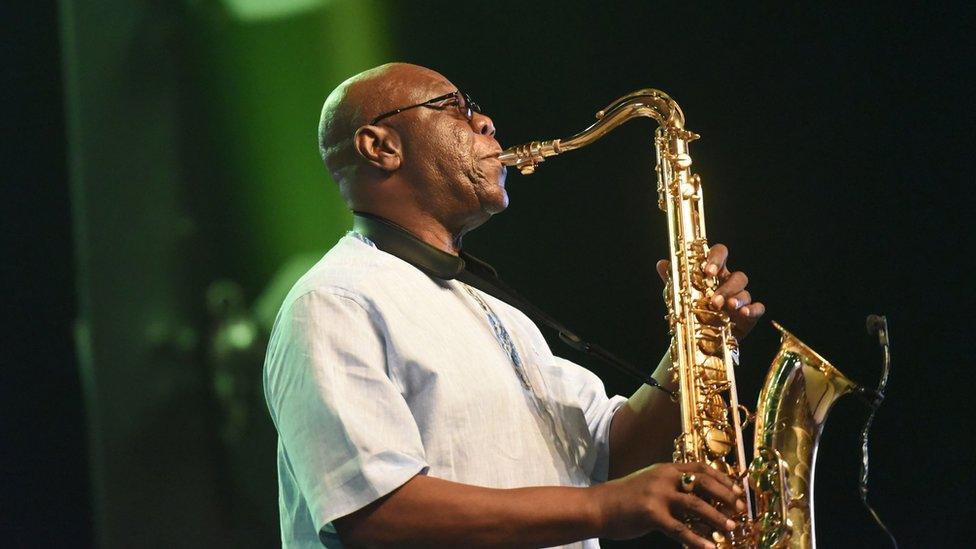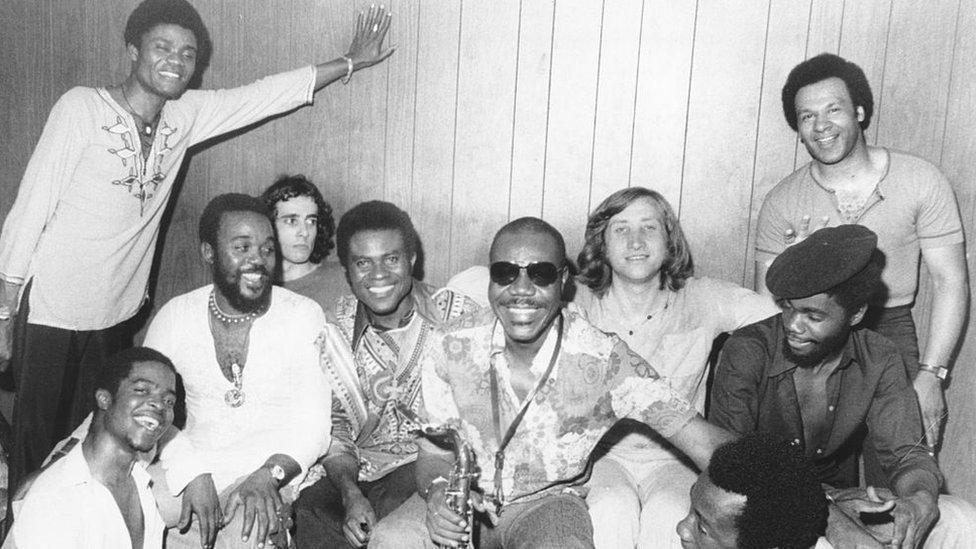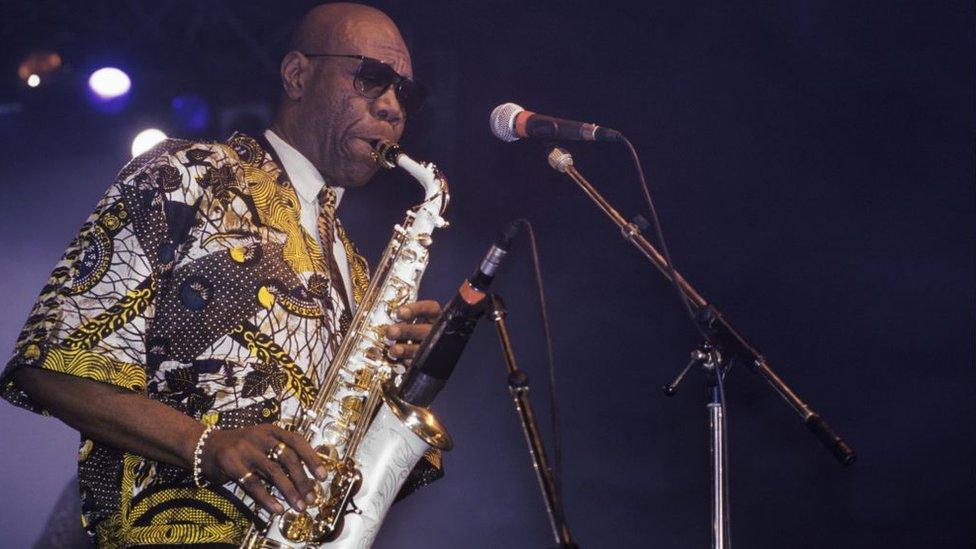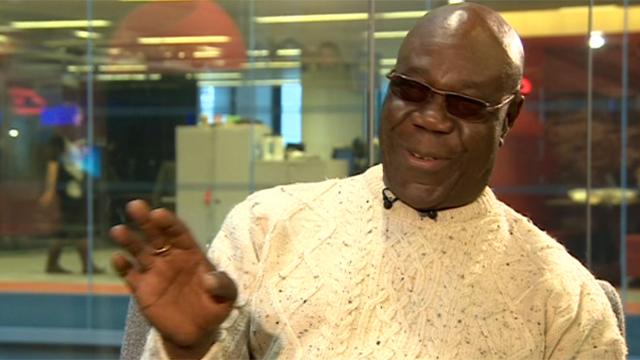Manu Dibango: African saxophone legend dies of Covid-19
- Published

The African saxophone legend Manu Dibango has died in Paris after catching coronavirus.
Dibango - best known for his 1972 hit Soul Makossa - is one of the first global stars to die from Covid-19.
The 86-year-old fused jazz and funk music with traditional sounds from his home country, Cameroon.
He collaborated with numerous artists over a long career, including US pianist Herbie Hancock and Nigeria's Afrobeat pioneer Fela Kuti.
The Cameroonian musician filed a lawsuit in 2009 saying Michael Jackson had stolen a hook from his song, Soul Makossa, for two tracks on the world's best-selling album, Thriller. Jackson settled the case out of court.
Manu Dibango speaks about some of his memorable outings
“It is with deep sadness that we announce you the loss of Manu Dibango, our Papy Groove,” a statement on his official Facebook page read.
His funeral will take place in “strict privacy”, the statement read, asking instead for people to send condolences by email and adding that a tribute will be arranged “when possible”.
Top African musicians Angelique Kidjo and Youssou Ndour have led the tributes.
'Giant of African music'
On Twitter, Kidjo shared a video, recorded two months ago, of her rehearsing the end of Soul Makossa with Dibango.
"You're the original giant of African music and a beautiful human being," the Beninois performer wrote.
Allow X content?
This article contains content provided by X. We ask for your permission before anything is loaded, as they may be using cookies and other technologies. You may want to read X’s cookie policy, external and privacy policy, external before accepting. To view this content choose ‘accept and continue’.

Ndour called the Cameroonian a "genius" on the saxophone and described him as a "big brother, a pride for Cameroon and all of Africa".
Both Ndour and Kidjo, along with other stars such as Salif Keita, Papa Wemba and King Sunny Ade, worked on Dibango's 1994 album Wakafrika.
Speaking to the BBC in 2013 about how he wanted to be remembered, Dibango said: "When you are gone, it is finished, it is not up to me to say, 'I want this.'"

Manu Dibango, seen here in 1970, drew on a wide range of musical influences
Born in the Cameroonian city of Douala in 1933, which at the time was under French colonial rule, Dibango’s musical career spanned across more than six decades.
'Raised in the Hallelujah'
He grew up in a religious Protestant family, the AFP news agency reports, and his first musical influences came from the church.
"I'm a child raised in the 'Hallelujah'," he is quoted as saying.
But he drew on many influences and was well known for his eclectic style.
"I play different kinds of music before playing my own. I think that that's very important to play other people's music," he told the BBC in 2017.
"As you are African they expect you always to play African. Forget that. You're not a musician because you're African. You're a musician because you are musician. Coming from Africa, but first, musician."

Dibango failed his high school exams after being distracted by music
He was sent to high school in France, which is where he learnt to play the saxophone.
The first tune he performed, in front of fellow students, was When the Saints Go Marching In, he told the BBC.
To the disappointment of his father, Dibango failed his high school exams and took up music performing in nightclubs in Belgium instead, AFP reports.
- Published12 December 2013

- Published8 February 2012